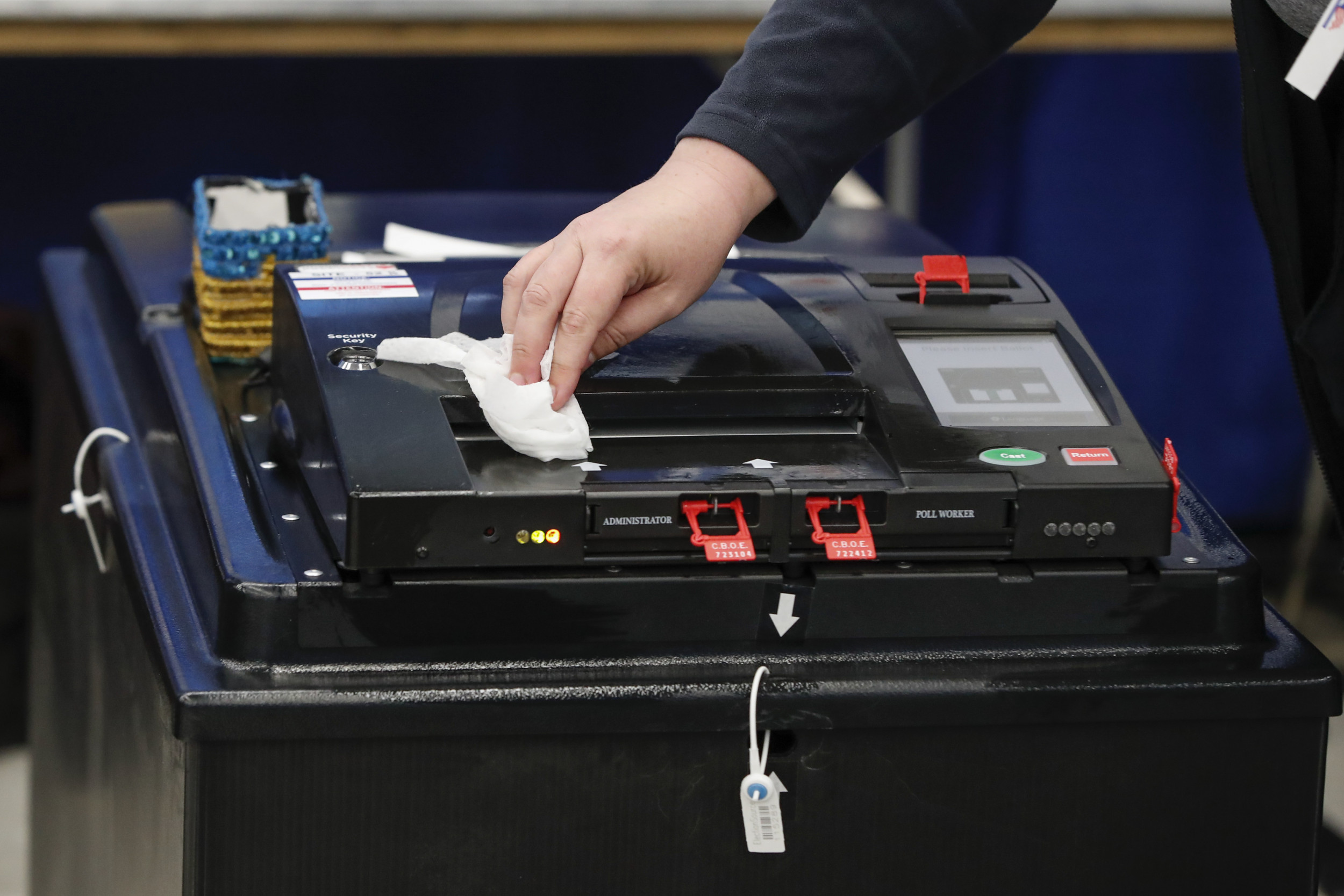This article is part of The D.C. Brief, TIME’s politics newsletter. Sign up here to get stories like this sent to your inbox.
On the surface, the details of the case seemed plenty narrow: a Colorado web designer who is cool making wedding websites for “Mike and Mary” but not “Mike and Mark” thinks Colorado’s anti-discrimination law could force her to someday do coding that runs counter to her Evangelical Christian faith. She isn’t yet in the business of making such pages, no confirmed couples had approached her, and the plaintiff here was a civil rights panel. It was a sketchy case built on a dodgy—and maybe fabricated—premisebut it still wound up on the docket. Yet in the designer’s view, Colorado and the 29 other states with similar protections for LGBTQ individuals impede her First Amendment rights to preemptively advertise that she wants none of their nuptials’ joy.
But, look beyond the sepia-toned pages asking a distant cousin the age-old question of beef, fish, or vegetarian entree? Nothing less than the rights of every LGBTQ American to marry their same-sex partner hangs in the balance of a case nominally about hyperscript, links to registries, and social-media links. After all, these things often start narrow and then snowball.
The Supreme Court on Friday decided Lorie Smith’s fears were grounded in some version of a paranoid reality. In a 70-page ruling that is a blow for LGBTQ rights—and perhaps a harbinger of even more chipping away to come—the justices decided the First Amendment to the U.S. Constitution had primacy over any state-level non-discrimination laws. The case, 303 Creative LLC v. Eleniswas named for Smith’s firm and the chair of the state civil rights panel, Aubrey Elenis.
“The First Amendment envisions the United States as a rich and complex place where all persons are free to think and speak as they wish, not as the government demands,” the 6-3 majority wrote in a ruling that was as expected as it was foreboding.
Put plainly: states can try to pass local anti-bigotry laws, but national religious liberties still supercede them.
If this case sounds familiar, there’s a reason. The last time the Supreme Court faced a case about whether a wedding vendor could discriminate against same-sex couples, then-Justice Anthony Kennedy bent and stretched and craned to find an off-ramp against making any sweeping pronouncements. It was 2018, the right to federal same-sex marriage protections had arrived only in 2015, and Kennedy found himself confronting two pillars of his career: he had written every major ruling projecting LGBTQ rights in the previous decades, but he was also an avowed defender of the First Amendment rights to free expression.
Kennedy, then the center of the High Court, rejected the options before him, deciding against siding with a same-sex couple who had been denied a cake for their Colorado wedding reception and against siding with the baker who said his oven was off-limits to gay couples. Instead, Kennedy detoured to a 7-2 ruling that decided the cake case on narrow grounds that applied only to the dessert at hand. In that case, Masterpiece Cakeshop v. Colorado Civil Rights CommissionKennedy and his co-signers settled that comments deemed hostile to faith made by one of the civil rights panel members warped its credibility to treat the baker fairly.
Days later, Kennedy would announce his retirement from the bench. In the years since, two other Justices have left: Ruth Bader Ginsburg died in 2020 and Stephen Breyer retired in 2022 rather than risk a political paralysis after that year’s midterms. The Supreme Court, to be understated, has seen a lurch rightward with three appointees from President Donald Trump. (Justice Antonin Scalia died in 2016, but Senate Leader Minority Mitch McConnell refused to consider the Election Year nomination of Barack Obama’s pick, now-Attorney General Merrick Garland. Joe Biden successfully nominated Ketanji Brown Jackson.) Most major cases are now decided by 5-4 or 6-3 majorities, with the only reliably liberal voices coming from Justices Sonia Sotomayor, Elena Kagan, and Jackson. (In a twist, Chief Justice John Roberts has emerged as an unlikely swing vote.)
More from TIME
But the shift has been noticeable. Consider the fall of Roe v. Wade just a year ago last weekend, ending a half-century of precedent of federal protection of abortion rights. Court watchers predicted a similar seismic movement in the Justices’ approach to LGBTQ rights, with the hypothetical website question being the first erosion.
During oral arguments in December, Kagan explicitly pressed Smith’s attorney on why Mike could marry a Mary but not a Mark in her design shop. The response was that it would be unconstitutionally compelled speech that ran against Smith’s right to express herself through silence.
Still, the Justices had signaled that they were more sympathetic to Smith—or at least had the numbers to help her cause to victory. To listen to more than two hours of questions, it was clear that the conservative Justices seemed to treat creative companies like Smith’s as a stripe apart from, say, hotels or restaurants core to public accommodations.
Since then, activists and court watchers have been warning this was a plausible outcome and one unlikely to stop with wedding websites.
With few exceptions, the Supreme Court is typically reluctant to make sweeping reversals of rights, at least not suddenly. On the way to the 2015 Obergefell case that made marriage equality the law of the land, there were two cases decided the same day in 2013: one that was narrowly about Prop 8, a 2008 California ballot initiative halting same-sex marriages, in Hollingsworth v. Perry, and a case that questioned whether lesbian couples enjoyed the same inheritance rights as everyone else in United States v. Windsor. In both cases, LGBTQ advocates had reasons to celebrate. The rulings came on the exact anniversary of the 2003 ruling Lawrence v. Texas that overturned sodomy bans and legalized sexual activities between consenting LGBTQ adults.
And, in complete honesty: Obergefell didn’t put an end to all discrimination against LGBTQ Americans. Plenty still was and is still legalsuch as in relation to housing and employment. And the same-sex marriage bill last year that President Joe Biden signed into law still leaves plenty of gaps for rights to be skimmed if not slashed.
As conservatives have been gunning for Obergefellthis case about a website was seen as a door-opener, the kind that could be used in future terms to revisit marriage rights. Just a few weeks ago, when Transportation Secretary Pete Buttigieg, the nation’s highest-ranking Senate-confirmed gay member of the Biden Administration, joined TIME’s Washington Bureau for a wide-ranging conversation, he was blunt: “I mean, Roe fell and that was the law of the land for longer than I’ve been alive. Nothing is safe. Especially right now,”
After all, Roe had been the law for 49 years; marriage rights have been around just eight years, making it far easier to ditch. And don’t think the anti-LGBTQ rights groups don’t know how much easier Obergefell might be to make a blip in history books. The ruling in 303 Creative LLC just confirmed that fear.
Make sense of what matters in Washington. Sign up for the D.C. Brief newsletter.
Write to Philip Elliott at philip.elliott@time.com.
Note: This article have been indexed to our site. We do not claim legitimacy, ownership or copyright of any of the content above. To see the article at original source Click Here













